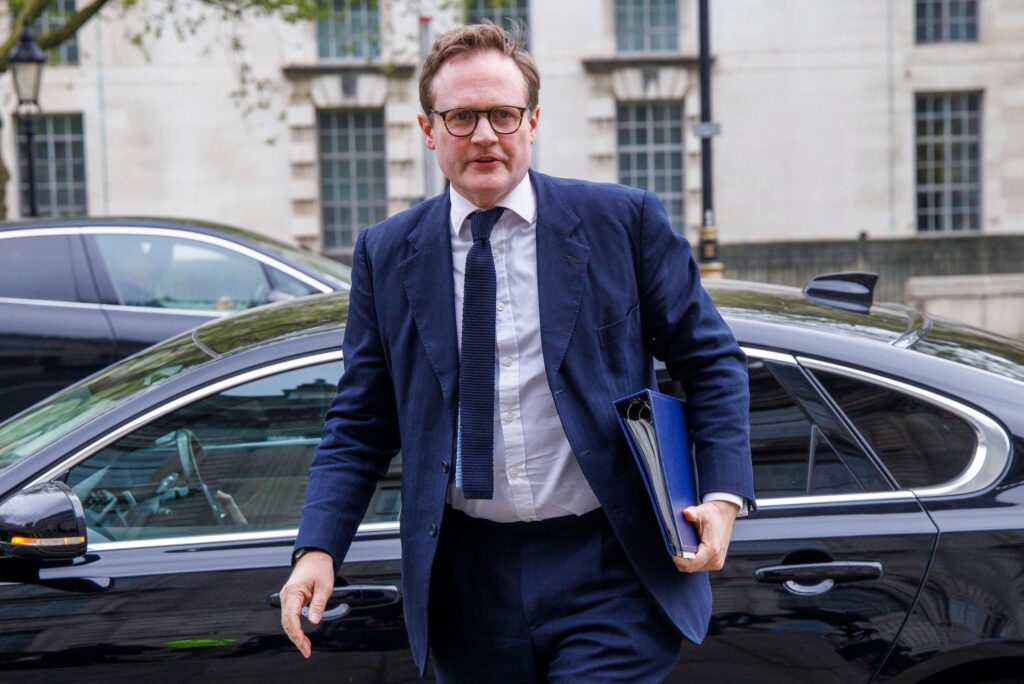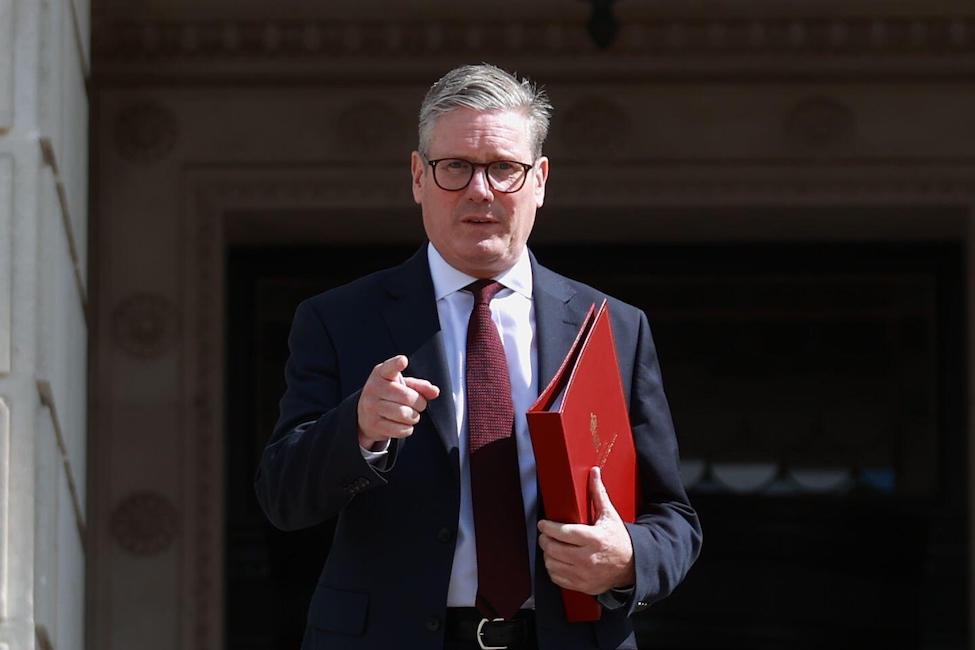The below content first appeared in Politics.co.uk’s Politics@Lunch newsletter, sign-up for free and never miss this essential briefing.
Last night, nominations for Conservative candidates to succeed Rishi Sunak opened, preparing the way for a crowded and likely divisive debate about the party’s future. At the time of writing, two Tory MPs have declared their candidacies: Tom Tugendhat and James Cleverly, tributes who both emanate from the Conservatives’ moderate wing.
But the trickle of ambitious MPs entering the race will surge to a deluge over the coming hours and days, as contenders from the Conservative right stake their claim to the Tory soul. Robert Jenrick, the former immigration minister, is expected to announce in the coming hours; Kemi Badenoch’s campaign website, https://kemiforleader.com/, is currently “undergoing maintenance”. Meanwhile, Priti Patel and Suella Braverman wait in the wings — likely shoring up support in the Conservative parliamentary party.
(That said, Braverman — like fellow prospective contenders Mel Stride and Kevin Hollinrake — may struggle to reach the 10 MP nomination threshold needed to officially enter the race.)


Although the Conservative leadership contest is still in its earliest phase therefore, the contestants’ first hurdle is arriving fast — with nominations set to close at 2.30 pm on 29 July. Those who secure the set threshold of nominations will then be whittled down to four, via recurrent rounds MP voting, in time for conference season this autumn. Having put their case to the Tory selectorate, the race will next be narrowed further to two. Finally, the winner will be picked by party members and announced on 2 November — just three days before the US election oddly.
One individual confident of running the race to its end will be Tugendhat, the shadow security minister. Declaring his candidacy in an article for the Telegraph last night, Tugendhat insisted he is not “just running to be the next leader of the Conservative party. I am running to be the next Conservative prime minister. That is what this leadership election is all about: winning.”
He repeated this refrain this morning, telling BBC Breakfast that “it is possible” for the Conservative Party to win in 2029. “You can look at what Keir Starmer achieved, frankly, he went from his worst electoral result to his best in five years”, he added. Read Tugendhat’s full comments here.
That said, his reflections on the incipient race’s dividing lines strike me as more revealing as to the contest’s likely trajectory. As alluded to above, the shadow security minister is one of race’s designated “moderates” — a political kiss of death if recent Tory leadership scuffles serve as a guide. And it’s a label Tugendhat will struggle to shake — he’s an erstwhile “remainer”, patron of the Tory Reform Group and longtime critic of Boris Johnson, after all.
But the ex-security minister shakes nonetheless. An enthusiastic student of recent Tory leadership election history, Tugendhat has sought to neutralise criticism that he is the race’s moderate tribute by outlining an updated position on the European Convention on Human Rights (ECHR). Pitching to the right of his party, Tugendhat — who has previously warned against leaving the ECHR — has now said he would be prepared to exit it as prime minister.
If institutions make it harder to control the UK’s borders, Tugendhat argues in his Telegraph missive, the country should “exempt ourselves from them” or “leave their jurisdiction”. He suggested this the “common-sense Conservative position”.
Moreover, leading into this crucial section on the ECHR, Tugendhat argued that the leadership race won’t be nearly as “divisive” as some commentators suggest. “There’s a long list of things this election isn’t about”, Tugendhat claimed, naming the ECHR, gender, tax rates, defence spending and net zero. “These are things that aren’t up for debate”, he added. “Because politics is about principles and all Conservatives are guided by our basic principles here.”
Tugendhat’s campaign is less drawing dividing lines, therefore, than erasing them. And there is a simple — and probably canny — rationale informing his positioning here.
The Conservative security spokesperson recognises that if the leadership race becomes an ideological purity test, informed by factional associations, he will lose. Conversely, if he can redirect the contest toward a conversation about “trust” and restyle the race as a search for the individual best-placed to beat Keir Starmer — à la David Cameron in 2005 — Tugendhat stands a strong chance indeed.
Recent polling suggests Tugendhat is the least disliked Conservative candidate nationally, recording a net favourability rating of -3 with the wider public and +28 with 2024 Conservative voters (according to Savanta, that is). Compare these scores to ex-home secretary Priti Patel’s -28 net rating with the public and relatively mere +7 with Tory voters.
Of course, one factor strengthening Tugendhat’s pitch this contest is that he, unlike candidates such as Patel and Badenoch, is a relative unknown. The ex-security minister is yet to serve as a secretary of state in government (the only major Conservative challenger not to do so) — and is, therefore, largely untainted by the legacies of recent Tory administrations. The same cannot be said about James Cleverly, a moderate rival.
Nonetheless, the risk for Tugendhat is that he fails to contour the contest along the lines described above — and that the race instead descends into a recriminatory circus, concerned mainly with neutralising the Reform threat with bold, brash ideological offers. This is the campaign, for instance, that Suella Braverman had planned to run before her chances imploded.
Still, Braverman’s scuppered pitch may well be honed by challengers such as Patel, Jenrick or Badenoch. Certainly, these three contenders stand a far better chance of wooing the Telegraph readership and GB News viewership than Tugendhat — i.e. the ideologically maximalist Tory base.
But such positioning also allows the shadow security minister to maintain a distance from the scuffling that will, inevitably one would think, break out on the right. As Jenrick, Badenoch and Patel battle for the mantle of Tory right champion, Tugendhat can assume the role of the contest’s de facto adult, stressing his credentials as a unity candidate and imploring colleagues to cease the damaging infighting.
In his previous bid for leader in 2022, Tugendhat attracted 31 MPs in the third round of voting. It was a strong showing for the relatively unknown foreign affairs select committee chief. Today, as one of the race’s frontrunners — on the heels of bookies’ favourite Badenoch even — Tugendhat seems well-positioned to advance as the long leadership race unfurls.
Subscribe to Politics@Lunch
Lunchtime briefing
Tom Tugendhat: I can replicate Starmer and lead Conservatives to power in one term
Lunchtime soundbite
‘They left us the worst inheritance since the second world war, and every day – every day – we’re finding more mess that they’ve left for us to clear up’
— Prime minister Keir Starmer says the “hard graft of rebuilding this country has truly started” as he accused his predecessors of leaving a “rot of shortsightedness and self-service”
The comments came as the PM set out the government’s plans to boost domestic green energy production across the UK in a speech in Runcorn today. GB Energy, Starmer said, will “drive down bills” and give Britain “energy independence”.
Now try this…
‘The great Tory beauty pageant’
Politico reports
‘Tories “deserved” to lose general election, says former Conservative MP’
Via PoliticsHome. (Paywall)
‘Tugendhat says all Conservatives agree on cutting taxes and defence spending, but experience suggests otherwise’
ConservativeHome’s Henry Hill writes.
On this day in 2023:
Rishi Sunak’s tilt at a ‘net zero culture war’ is a sign of things to come












